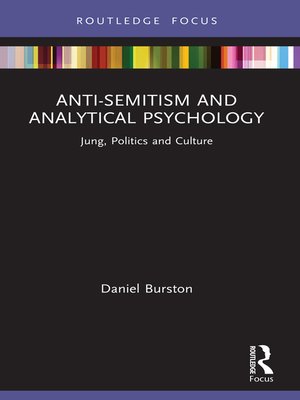Anti-Semitism and Analytical Psychology
ebook ∣ Jung, Politics and Culture · Focus on Jung, Politics and Culture
By Daniel Burston

Sign up to save your library
With an OverDrive account, you can save your favorite libraries for at-a-glance information about availability. Find out more about OverDrive accounts.
Find this title in Libby, the library reading app by OverDrive.



Search for a digital library with this title
Title found at these libraries:
| Loading... |
Winner of the Internationl Association for Jungian Studies (IAJS) Book Award for Best Applied Book 2021
Carl Jung angrily rejected the charge that he was an anti-Semite, yet controversies concerning his attitudes towards Jews, Zionism and the Nazi movement continue to this day. This book explores Jung's ambivalent relationship to Judaism in light of his career-changing relationship and rupture with Sigmund Freud and takes an unflinching look at Jung's publications, public pronouncements and private correspondence with Freud, James Kirsch and Erich Neumann from 1908 to 1960.
Analyzing the religious and racial, Christian and Muslim, high-brow and low-brow varieties of anti-Semitism that were characteristic of Jung's time and place, this book examines how Muslim anti-Semitism and anti-Zionism intensified following the Balfour Declaration (1917), fostering the resurgence of anti-Semitism on the Left since the fall of the Soviet Empire. It urges readers to be mindful of the new and growing threats to the safety and security of Jewish people posed by the resurgence of anti-Semitism around the world today.
This book explores the history of the controversy concerning Jung's anti-Semitism both before and after the publication of Lingering Shadows: Jungians, Freudians and Anti-Semitism (1991), and invites readers to reflect on the relationships between Judaism, Christianity and Zionism, and between psychoanalysis and analytical psychology, in new and challenging ways. It will be of considerable interest to psychoanalysts, historians and all those interested in the history of analytical psychology, anti-Semitism and interfaith dialogue.






